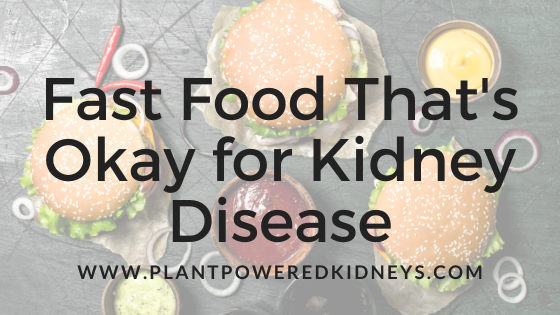Ever wonder, “Is pineapple good for kidneys?” Kidney health is extremely important, and if you want to do everything you can to keep them functioning well, incorporating pineapple into your diet is a great way to start. This delicious fruit is packed with nutrients that are beneficial for kidney health, including vitamins C and B6, manganese, and Bromelain. Let’s take a closer look at all of these nutrients and what they can do for your kidneys!
Table of Contents
About Pineapple
The pineapple (Ananas comosus) is a tropical fruit that is believed to have originated in South America.
It is thought to have gotten its name from the Spanish word “pina” which means “pine cone.”
The first recorded mention of the pineapple was by Christopher Columbus who noted it while visiting the Caribbean.
While pineapple is available year-round, the peak season for fresh pineapple is from March through July. (However, Hawaii pineapple season is from June through September!)
But still, is pineapple good for kidneys? Next are the nutrition details about pineapple to start to show just how it can fit into a renal diet.

Pineapple Nutrition
A single serving of pineapple (one cup) contains about 82 calories, 22 grams of carbohydrates, and zero grams of fat.
It is a good source of dietary fiber, providing two grams per serving, as well as vitamin C (79 milligrams, or 86% of the Daily Value) and B vitamins.
Pineapple is also a good source of manganese (44% of the DV) and is a decent source of copper, magnesium, and vitamin B6.
It is also rich in antioxidants that can help fight free radicals and protect cells from damage.
Pineapple is particularly high in an enzyme called Bromelain. Bromelain is responsible for breaking down protein molecules into smaller particles.

Fresh vs canned vs dried vs juice pineapple
When it comes to choosing pineapple, there are several different options available. The most common is fresh pineapple which is peeled and eaten raw.
Canned pineapple is also popular and is usually pre-cooked in syrup or juice. The best kidney-friendly option for canned pineapple is the one where the pineapple is packed in 100% juice.
Dried pineapple is a good option if you’re looking for a portable snack. However, dried pineapple is high in sugars as many have added sugars.
Pineapple juice pineapple is great for those who want to drink it as is or mix it with other juices.
It is also available in frozen form, which is a great option because freezing can protect its nutritional value.
| Pineapple Products | Serving Size | Calories | Carbohydrates (g) | Fiber (g) | Sugars (g) | Potassium (mg) | Phosphorus (mg) | Magnesium (mg) | Vitamin C (mg) | Oxalate (mg) |
|---|---|---|---|---|---|---|---|---|---|---|
| Fresh Pineapple | 1 cup | 82 | 22 | 2 | 16 | 180 | 13 | 20 | 79 | 4 |
| Frozen Pineapple | 1 cup | 75 | 20 | 2 | 15 | 164 | 12 | 18 | 72 | 4 |
| Dried Pineapple | 1 cup | 501 | 130 | 6 | 117 | 464 | 34 | 51 | 41 | 60 |
| Canned Pineapple (in 100% juice) | 1 cup | 118 | 30 | 2 | 28 | 407 | 17 | 44 | 17 | 48 |
| Canned Pineapple (in syrup) | 1 cup | 150 | 39 | 2 | 37 | 292 | 10 | 43 | 18 | 48 |
| Pineapple Juice | 4 fl oz | 66 | 16 | <1 | 12 | 160 | 10 | 15 | 54 | 3 |
Is Pineapple Good for Chronic Kidney Disease?
Chronic kidney disease is a condition in which the kidneys are unable to filter waste products and excess fluid from the body.
In this case, some must limit their intake of potassium as well as other minerals such as sodium, magnesium, and phosphorus.
This is because these minerals can build-up due to impaired function of the kidneys.
While many people with chronic kidney disease should avoid high potassium foods, pineapple is still a good option because it contains a lower amount of potassium than many other fruits.
For people with chronic kidney disease, eating a moderate amount of fresh, frozen, and even canned pineapple is generally safe and can provide some health benefits.
Potential Benefits of Pineapple for Kidney Health
Pineapples provide many benefits to kidney health, specifically because they contain Bromelain and vitamin C.
Both Vitamin C and Bromelain are anti-inflammatory agents that can help reduce the inflammation in the body caused by damaged or diseased cells.
Digestion
Digestion is another key factor in kidney health. The Bromelain found in pineapple is especially beneficial for digestion.
Bromelain is an enzymatic protein. This means it helps to break down food in our digestive system. It also helps to protect your gut from harmful bacteria and inflammation.
The vitamin C found in pineapple helps with regulating bowel movements. However, this does not mean eating more pineapple will resolve all gut issues. (More on that later.)
Cardiovascular Health
Pineapple has been shown to help protect cardiovascular health. This is important for kidney health as the kidneys work closely with the cardiovascular system.
The Bromelain in pineapple has been shown to help improve blood flow and reduce the risk of heart attacks.
Lower Cholesterol Levels
Pineapple has been shown to lower cardiac oxidative stress in rats with high cholesterol.
Note the research specifies an animal study. More research needs to be done to fully understand the abilities to lower cholesterol with pineapple in humans.
Reduce Inflammation
One of the main benefits of pineapple is that it can help reduce inflammation throughout the body.
Inflammation is often a symptom of diseases and can cause pain and discomfort. Most people with kidney disease experience inflammation.
Gout
Gout is caused by the build-up of uric acid in the blood.
Uric acid is a waste product that is created when the body breaks down purines. Purine is found in many foods, including seafood, red meat, and poultry.
Pineapple contains Bromelain which is shown to help break down the uric acid. This can be beneficial for those with gout as it can help to reduce the amount of pain they experience.
Prevents and Controls High Blood Pressure
Pineapple is also a source of potassium. Potassium is an essential nutrient that helps regulate fluid balance and control blood pressure levels.
It’s pretty apparent that there are plenty of reasons that make pineapple good for kidneys!
Is Pineapple Good for Kidney Stones?
The anti-inflammatory properties of these nutrients are helpful for preventing kidney stones and can even help reduce the size of existing ones.
Water
Pineapples are also a good source of water because it contains about 80 to 85 percent water.
Water is beneficial for maintaining proper hydration levels in the body and is especially important for people with kidney stones.
Potassium
High potassium content is also helpful in lowering the risk of kidney stones because high amounts can prevent calcium from being excreted through urine.
The more calcium is reabsorbed into the body, the less likely it is to form stones or crystals in our kidneys.
Citrate
Pineapple also has citrate. Citrate is helpful to prevent kidney stones by binding to calcium and preventing stone formation.
Oxalates
Fresh pineapple and pineapple juice are low in oxalate, as shown in the table above.
However, beware of canned and dried pineapple. Both are very high in oxalates.
Risks of Pineapple and Kidney Health
While there are not many, there are some risks when it comes to adding pineapple to a kidney-friendly diet.
Blood Thinning
One of the potential risks is that pineapple can thin the blood.
If you are taking blood-thinning medications, it is important to speak with your doctor before adding pineapple to your diet.
Diarrhea
Another risk is diarrhea because pineapple is a natural laxative due to its high vitamin C content.
Diarrhea is an important consideration for people with kidney disease because it can lead to dehydration.
Mouth Sores
Eating too much pineapple can cause angular stomatitis, otherwise known as mouth sores.
Stick to moderation to prevent this.
High Potassium and Manganese Levels
Those with kidney disease are at risk of high blood levels of both potassium and manganese. While pineapple is considered a low potassium food, an extra serving will double the potassium and manganese in the diet.
Because of this and the other risks from above, it’s best to enjoy pineapple in moderation.
How to Add Pineapple to The Renal Diet
As discussed, pineapple has some great benefits that will help protect the kidneys.
However, portions are important as pineapple contains potassium and sugars, both of which may need to be limited in a kidney-friendly diet.
Portion Control
Stick to 1/2 cup serving or 4 ounces of pineapple juice daily. This can still provide the benefits of pineapple while also keeping potassium and sugars in check.
Swap the OJ for PJ
If you’re looking for a low potassium juice alternative to orange juice, swap out for pineapple juice. A 4-oz serving has just 160 milligrams of potassium.
Use in Smoothies
Frozen pineapple can be a great addition to a low potassium smoothie or protein shake.
This is a great option for those that typically add banana, which is high in potassium.

Add to Yogurt Parfaits
Prepare breakfast or a snack with yogurt and frozen pineapple. As the pineapple thaws overnight, the melted juice will mix into the yogurt and add a natural sweetness.
Top with a kidney-friendly cereal!
Add to Salads
Fresh or canned pineapple can provide a delicious burst of flavor and sweetness to a salad. So try adding to a spinach or kale salad.
You could even use the pineapple juice in a refreshing vinaigrette like this one.
Use as a Low Potassium Pizza Topping
Pineapple on pizza can be controversial, but if you love it, use it! Try pairing with green peppers and olives for a low potassium pizza option.
Flavor Your Water
Getting plenty of water is incredibly important to protect kidney function and prevent kidney stones. So instead of a soda or juice, why not flavor your water with pineapple?
Bonus tip: When cutting up a fresh pineapple, use the tough pineapple core to flavor a pitcher of water! Add a few sprigs of mint or Thai basil for another burst of intriguing flavor.
Add to Kebabs
Make grillable veggie kebabs even more flavorful by adding chunks of pineapple. It grills wonderfully!
Try stacking pineapple, bell pepper (in all colors!), mushrooms, and onions for a delicious and nutrient-packed meal. Serve over a bed of couscous or quinoa and greens for a fun meal.
Grill for a Delicious Low-Potassium Dessert
Grilling pineapple is a great dessert as well. Grill pineapple rings or wedges and top with coconut whipped topping or your favorite vanilla ice cream.

So overall, is pineapple good for your kidneys?
Yes, pineapple is a great food to include in your diet if you want to improve your kidney health. It is packed with nutrients that are beneficial for the body and it has anti-inflammatory properties that can help reduce inflammation caused by damaged or diseased cells.
Additionally, digestion is aided by Bromelain which is found in pineapple. And finally, cardiovascular health is improved by the high levels of vitamin C present in pineapples.
All of these factors make it an excellent food choice for kidney health. People with chronic kidney disease can still safely eat a moderate amount of fresh or frozen pineapple without any adverse effects. So go ahead and enjoy some delicious pineapple today.



I use 1/2 cup fresh pineapple a lot @ tell my friends that have had kidney stones & have to go to the hospital to try fresh pineapple & not orange juice. I send my friends lots of things to tell them while younger how to save their kidneys. I have people laugh at me when I tell them red meat will hurt their kidneys. Thanks Jen for your videos and always posting interesting things for us to know about our Kidneys❤️❤️
It’s wonderful you’re working to help others, Laurena. Yes, some may find it hard to believe, but they’ll come around… eventually! 😉💚
Thank you for the tips. I have CKD